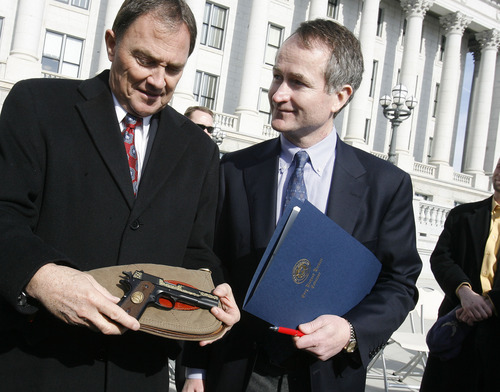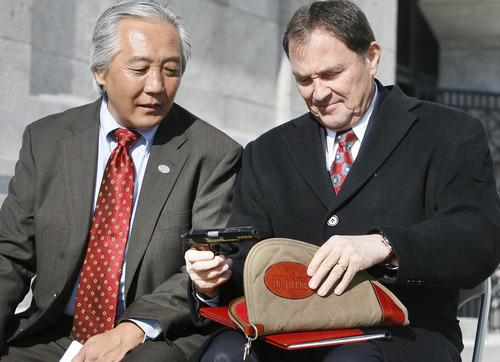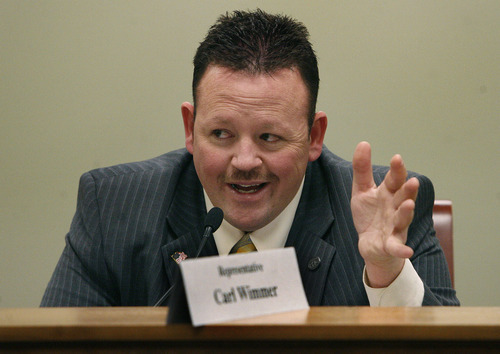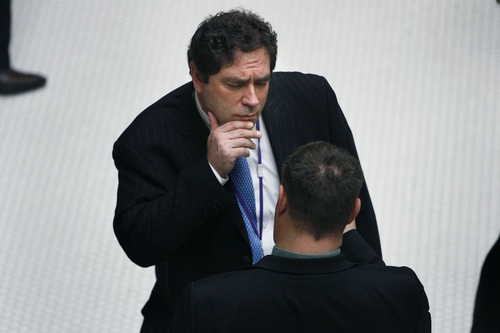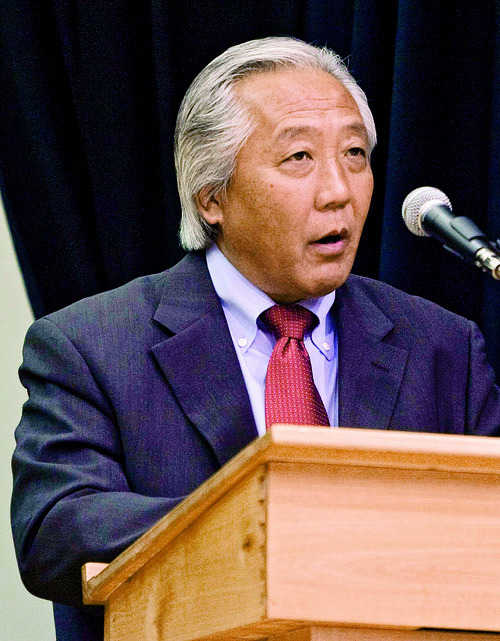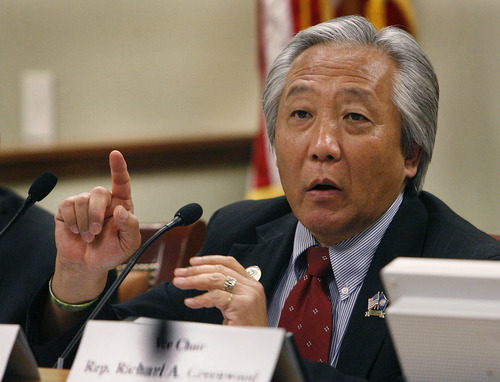This is an archived article that was published on sltrib.com in 2011, and information in the article may be outdated. It is provided only for personal research purposes and may not be reprinted.
There can be little doubt a week into the 2011 Legislature that lawmakers like their guns. Love them, really.
Lawmakers opened the session praising Utah weapons pioneer John M. Browning, celebrating a day honoring the state's founding father of firearms and then moving to designate Browning's M1911 as Utah's official gun.
And a House committee approved a bill that would require hotel owners to allow patrons to keep guns in their rooms.
"I think the reason you see so much pro-gun legislation is it reflects the people of Utah," said Rep. Stephen Sandstrom, R-Orem. "I think the majority of the people of Utah are pro-gun and they want their rights protected."
Rep. Brian King, D-Salt Lake City, said he thinks the push to expand gun rights stems from a general anti-government sentiment that is pervasive among conservatives.
"In Utah, being a Western state, it manifests itself in Second Amendment issues, private property issues. 'Don't tread on me' stuff," he said.
But other proposals being floated in the Utah Capitol, aimed at expanding Utah's gun laws — already among the most permissive in the country — could run into more resistance.
Gov. Gary Herbert said this week that he doesn't support an effort by Rep. Carl Wimmer, R-Herriman, to do away with Utah's concealed-weapons permit and instead let gun owners carry concealed, loaded firearms.
"I do support having to have a permit for a concealed weapon," Herbert said during his KUED news conference last week. "Those are necessary and important, and it has worked very well. I don't really see the big problem."
Wimmer's proposal would make Utah the fourth state with a constitutional carry provision on the books — Alaska, Vermont and Arizona are the others. It would allow anyone over the age of 21 without a serious criminal history or mental illness to pack a firearm, either concealed or out in the open, without a permit.
"It allows people to make that individual choice for themselves," Wimmer said earlier this month.
—
Public opinion • Meanwhile, a proposal being floated that would make clear that Utahns can openly carry firearms on college campuses is opposed by nearly two-thirds of Utah voters, according to a recent poll by The Salt Lake Tribune.
The poll, conducted by Mason-Dixon Polling & Research, Inc., found that 64 percent of Utahns would oppose a proposal to allow guns to be openly carried — with or without a concealed weapons permit — in the state, including on college campuses. Twenty-nine percent would support such a measure.
A bill unveiled last week by Rep. Curt Oda, R-Clearfield, would change Utah law to let any gun owner openly carry a weapon on any of Utah's state-run college campuses, as long as there isn't a bullet in the chamber. It also would eliminate the state law that creates 1,000-foot "gun free" buffer zones around public schools.
Currently, only those with a concealed weapons permit are allowed to have a gun on campus or near a school.
On Saturday, however, Oda said he decided to remove the language regarding the universities. He said he had discussions with U. President Michael Young and they "have an understanding" about the school's regulation of firearms and his bill is no longer needed. He said the law and a Utah Supreme Court ruling already make it clear that the U. cannot regulate firearms.
Oda still plans to seek to remove the 1,000-foot buffer around public schools.
The disagreement with the university came after a showdown last month over whether the U. could force concealed-weapon permit holders to actually conceal their firearms.
Two U. law enforcement officers were suspended for leaking an internal campus protocol directing police to insist the guns be concealed. Both officers were reinstated, but legislators and gun advocates were angered, arguing the U. had no authority to require people to keep their guns out of public view.
—
University policy • Utah's college and university presidents unanimously support the U.'s gun policy, said William Sederburg, Utah's commissioner of higher education.
"We are very supportive of the university's policy, which is essentially that open carries on campus are just inconsistent with the mission of the university, because it introduces a sense of intimidation and coercion," Sederburg said last week.
Crystal Perry, the U.'s representative on the group Students for Concealed Carry and a certified concealed weapons instructor, said university students, especially young women, need to be able to protect themselves on campus.
She said the Utah Supreme Court has made clear that the university can't make its own gun policies in violation of the law, "Yet the university continues to buck the law and enforce erroneous [policies]."
"Carrying [guns] openly is a matter of decorum and people should act with decorum," she said, "but I don't want to take that away from them because it is a right."
Young, in a memo last year, said visible guns on campus create a "fearful and intimidating campus environment," particularly in the wake of school shootings like the 2007 rampage at Virginia Tech that killed 32. He directed the police chief to require weapons be concealed, and action can be taken against those who refuse.
Historically, there have only been a handful of incidents involving guns being openly displayed on campus.
Police reports, obtained under an open-records request, show just a handful of gun-related incidents since 2008, including one in 2010 in which someone reported seeing a person with an assault rifle. It turned out to be an ROTC student practicing twirling a replica weapon.
In September, a gun was also left on a towel dispenser in a restroom on campus.
In March, a Utah Valley University student was stopped while openly carrying his weapon on the Orem campus and insisted he was within his rights, but the issue was resolved.
Sederburg said he hopes it remains a nonissue.
"We don't believe, in the last five years … that this has been an issue on campus," he said. "We think [the law] is working fine and there's no need for legislation." —
Conflicting legal opinions
The University of Utah has received contradictory legal advice on the issue of open carrying of firearms on campus.
In a March 2007 letter to the U.'s general counsel, Assistant Attorney General William Evans wrote that it would be against the law for people, even those with a concealed-weapon permit, to openly carry their weapons on campus.
"Clearly it is intended for concealed weapons to be, and remain, concealed except when used in lawful self-defense," Evans wrote.
Ten weeks later, the Attorney General's Office reversed itself. Assistant Attorney General Brent Burnett wrote that the law was unclear and it would be "speculation and conjecture" to offer an opinion on how the courts might rule.
"Utah's statutes neither specifically prohibit nor allow the holder of a permit to carry a concealed firearm to have expanded permission to openly carry a firearm at places and times where other citizens are prohibited from possessing firearms," he wrote.


